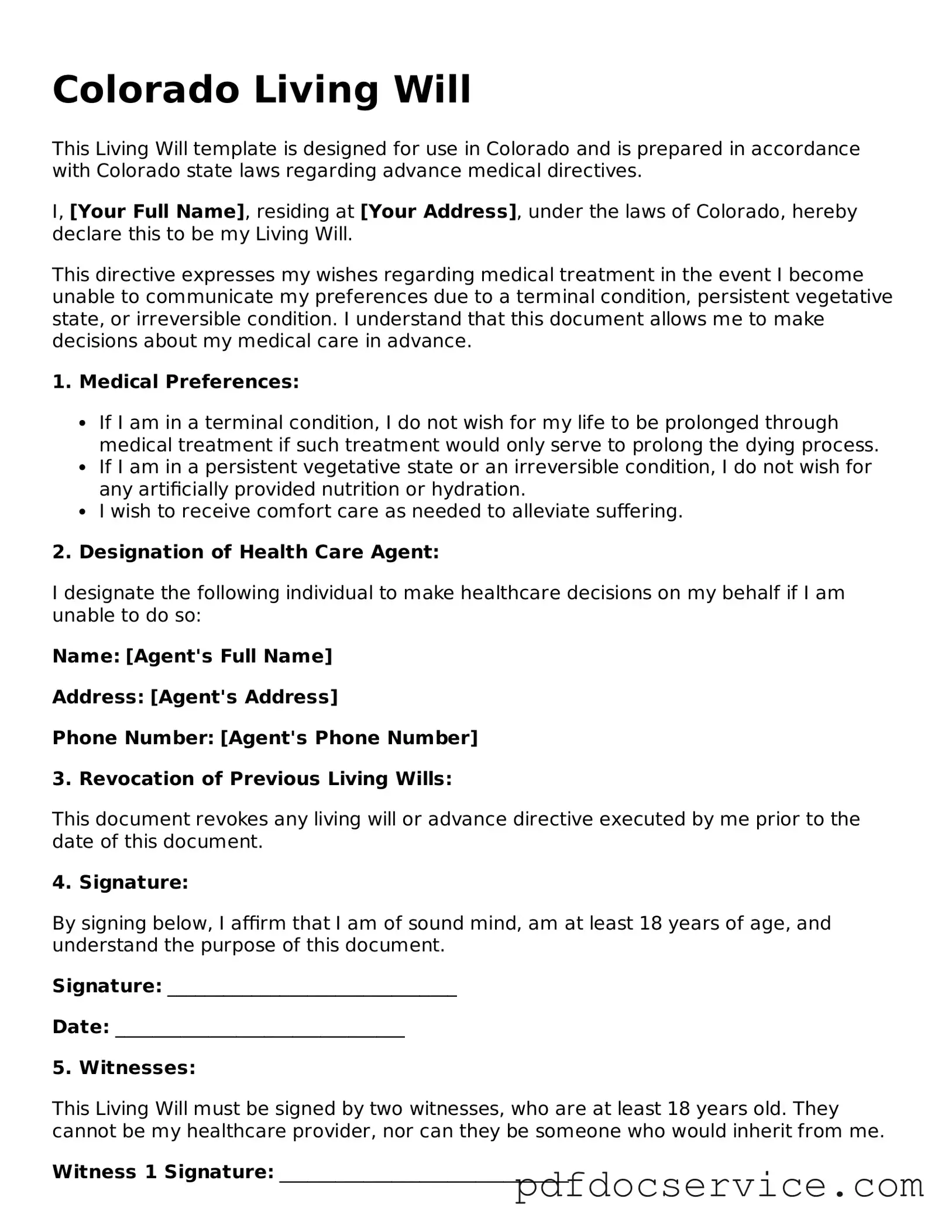Printable Living Will Template for Colorado
A Colorado Living Will is a legal document that allows individuals to outline their preferences for medical treatment in the event they become unable to communicate their wishes. This form provides clarity and guidance to healthcare providers and loved ones during difficult times. By expressing one's desires regarding life-sustaining measures, individuals can ensure their values and choices are respected.
Open Living Will Editor

Printable Living Will Template for Colorado
Open Living Will Editor

Open Living Will Editor
or
Get Living Will PDF
Finish the form now and be done
Finish Living Will online using simple edit, save, and download steps.